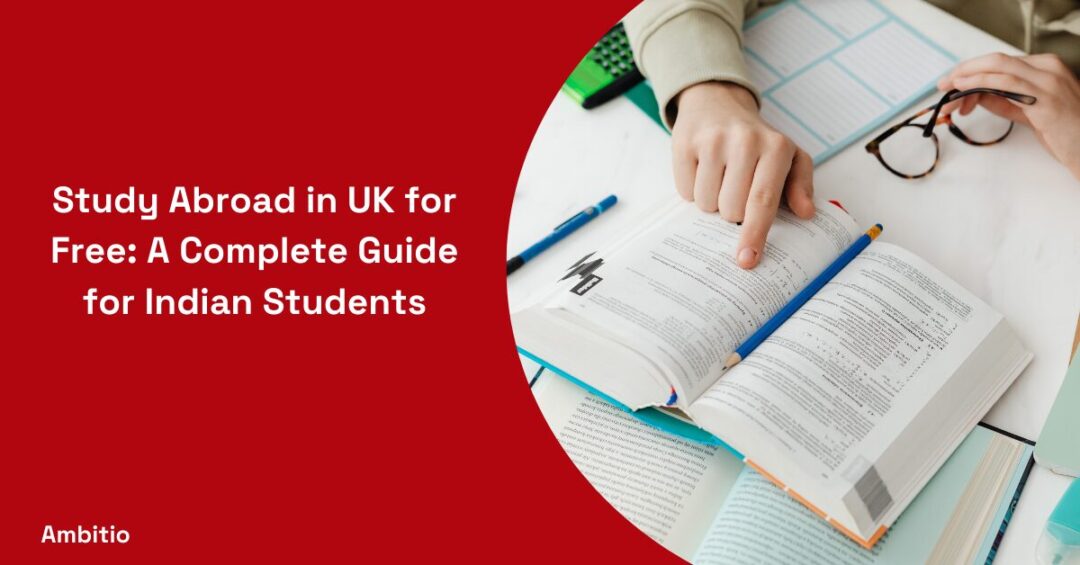13 December 2024
7 minutes read
Navigating the Journey: Can Someone Sponsor Me to Study in the UK?

Introduction
The United Kingdom, known for its prestigious universities and diverse educational opportunities, attracts thousands of international students each year. However, the path to studying in the UK is not always straightforward, especially when it comes to securing a student visa and finding a sponsor.
This comprehensive guide delves into the nuances of getting sponsored for a student visa, covering every aspect from financial requirements to the application process.
Understanding the UK Student Visa and Sponsorship Requirements
The Essentials of a UK Student Visa Application
Embarking on the journey to study in the UK begins with understanding the student visa application process. The UK government issues a Tier 4 (General) student visa to international students who have been offered a place in a UK institution. To qualify, applicants must provide:
- Proof of Acceptance: A Confirmation of Acceptance for Studies (CAS) from a licensed UK educational institution.
- Financial Proof: Evidence of sufficient funds to cover tuition fees and living expenses for the duration of the course.
- Language Proficiency: Meeting the required level of English language proficiency through standardized tests like IELTS or TOEFL.
This initial step is crucial as it sets the foundation for the entire visa application process.
Deciphering Sponsorship for UK Student Visas
Sponsorship is a pivotal aspect of the student visa process. A sponsor could be:
- Educational Institution: Providing you with a CAS, which is essential for the visa application.
- Financial Sponsor: Such as a parent, relative, government body, or an international organization, taking responsibility for your financial support during your studies in the UK.
Understanding the role and responsibilities of a sponsor is essential for a smooth visa application process.
Delving into Financial Sponsorship for UK Student Visas
Securing financial sponsorship is a critical aspect of the journey for international students aspiring to study in the UK. This part of the process often raises numerous questions and requires careful planning and understanding. Here, we delve deeper into the intricacies of finding and securing financial sponsorship for UK student visas.
Identifying Potential Financial Sponsors
- Family Members and Personal Networks: The most common source of financial sponsorship comes from family members. Parents, guardians, or other relatives often take on the responsibility of funding an international student’s education. It’s important to have open and honest conversations with potential family sponsors about the extent of their financial support and to document this commitment formally for visa purposes.
- Government Scholarships and Grants: Many countries offer government-funded scholarships to their citizens for studying abroad. These scholarships can cover tuition fees, living expenses, and travel costs, and sometimes even provide a monthly stipend. Researching your home country’s education department or ministry can reveal such opportunities.
- International Organizations and NGOs: Various international organizations and NGOs offer scholarships or grants to students from specific countries, fields of study, or backgrounds. These can range from covering partial tuition fees to providing comprehensive financial support, including living expenses.
- Educational Institutions: Some UK universities offer scholarships or bursaries to international students based on academic merit, financial need, or specific criteria such as country of origin or field of study. It’s crucial to check the scholarship opportunities available at your chosen institution and apply early, as these funds are often limited and competitive.
- Private Companies and Employers: In certain cases, private companies or employers sponsor an employee’s further education. This is more common for postgraduate studies and often comes with conditions, such as returning to work for the company after graduation.
- Crowdfunding and Community Support: An emerging trend is the use of crowdfunding platforms where students can share their educational goals and seek financial support from a broader community. This approach requires a compelling story and effective communication to engage potential donors.
Proving Your Financial Capability
Once a financial sponsor is secured, the next step is to prove your financial capability to the UK visa authorities. This involves:
- Official Financial Documentation: Providing bank statements, scholarship letters, or official financial commitments from sponsors. These documents must be recent, typically within 28 days of the visa application, and in the correct format as specified by the UK visa authorities.
- Sufficient Funds for Tuition and Living Expenses: You must demonstrate that you have enough funds to cover your tuition for the first year of study and living expenses for up to nine months. The UK government specifies a set amount for living expenses, which varies depending on whether you will be studying in London or elsewhere in the UK.
- Continuous Financial Support: If your course duration extends beyond a year, you need to provide evidence or a credible plan showing how you will fund the subsequent years of your study. This might include a written commitment from a sponsor or an educational loan agreement.
- Transparency and Honesty: All financial information provided must be accurate and verifiable. The UK visa authorities conduct thorough checks, and any discrepancies can lead to visa refusal.
- Meeting Health Surcharge and Visa Application Fees: Apart from tuition and living expenses, you must also have funds to cover the health surcharge and visa application fees. These costs should be factored into your financial planning.
Managing Expectations and Responsibilities
Understanding the expectations and responsibilities that come with financial sponsorship is crucial. This includes:
- Clear Communication with Sponsors: Regularly communicate with your sponsors about your financial needs, course progress, and any changes to your circumstances.
- Adhering to Visa Conditions: Ensure that you comply with all conditions of your student visa, including restrictions on employment and requirements to maintain a certain level of academic progress.
- Financial Budgeting and Management: Living as a student in the UK can be expensive. Effective budgeting and financial management are key to ensuring that your sponsorship funds adequately cover your entire period of study.
The Comprehensive Guide to Applying for a UK Student Visa
Step-by-Step Application Process for a UK Student Visa
Applying for a UK student visa can be a daunting task, but breaking it down into manageable steps can simplify the process. Here’s a detailed, step-by-step guide to help you navigate through the application process.
Step 1: Confirm Your Acceptance at a UK Institution
- Receive a Confirmation of Acceptance for Studies (CAS): Before applying for a student visa, ensure you have been accepted by a UK educational institution licensed to sponsor international students. The institution will provide you with a CAS, a crucial document for your visa application.
Step 2: Prepare Necessary Documents
- Passport and Identification: Ensure your passport is valid for the entire duration of your stay in the UK.
- Financial Proof: Gather evidence of sufficient funds to cover your tuition and living expenses, including bank statements or a financial sponsorship letter.
- CAS Document: Keep the original CAS document provided by your educational institution.
- Academic Qualifications: Prepare the original copies of your academic qualifications as mentioned in your CAS.
- English Language Proficiency: Provide proof of English language proficiency, typically through a secure English language test (SELT).
- Health Insurance: Acquire a health insurance plan that covers your stay in the UK, if applicable.
- Recent Photographs: Prepare passport-sized photographs as per the UK visa photo requirements.
Step 3: Apply Online
- Fill Out the Application Form: Complete the online application form for a Tier 4 (General) student visa on the UK Government’s official website.
- Pay the Visa Fee: Pay the required visa application fee online during the application process.
- Healthcare Surcharge Payment: Pay the immigration health surcharge (IHS) as part of your application, granting you access to the UK’s National Health Service (NHS).
Step 4: Schedule and Attend a Biometric Appointment
- Schedule an Appointment: After submitting the online application, book an appointment at a visa application center to provide your biometric information (fingerprints and a photograph).
- Attend the Appointment: Ensure you attend the biometric appointment, bringing all required documents, including your appointment confirmation, passport, and additional supporting documents.
Step 5: Attend a Credibility Interview (If Required)
- Prepare for the Interview: Some applicants might be required to attend a credibility interview where they will be asked questions about their study plans, financial status, and reasons for choosing the UK.
Step 6: Wait for the Decision
- Application Processing: The processing time can vary, so it’s important to apply well in advance of your course start date.
- Track Your Application: You can usually track the progress of your visa application online.
Step 7: Collect Your Visa and Travel Documents
- Visa Collection: Once your visa is approved, you will be notified about when and where to collect your documents and passport with the visa.
- Review Visa Details: Upon receiving your visa, check all the details to ensure they are correct.
Step 8: Plan Your Travel to the UK
- Travel Arrangements: Book your travel to the UK, ensuring you arrive no more than one month before the start of your course, as per visa regulations.
- Accommodation Arrangements: Secure your accommodation in the UK prior to your arrival.
- Prepare for Arrival: Familiarize yourself with UK customs regulations and prepare the necessary documents to show at the UK border, including your passport, visa, CAS, and proof of funds.
Transitioning from Another Visa to a UK Student Visa
If you’re already in the UK on a different visa, you might be eligible to switch to a student visa. The process involves:
- Meeting the Same Requirements: You must fulfill all the criteria applicable to new student visa applicants.
- Application Timing: Apply before your current visa expires and after receiving a CAS from a UK institution.
Switching visas requires a thorough understanding of the eligibility criteria and timing.
After Obtaining Your Student Visa: What Next?
Navigating Life in the UK as an International Student
Once you have your student visa, preparing for life in the UK includes:
- Accommodation: Securing a place to live, either on-campus or off-campus.
- Healthcare: Registering with a local general practitioner and understanding the UK healthcare system.
- Employment: Understanding the rules for part-time work as a student visa holder.
Adapting to life in the UK is an exciting part of the educational journey, offering cultural and personal growth opportunities.
Understanding Visa Extensions and Post-Study Options
Towards the end of your course, you may consider:
- Visa Extensions: If you wish to continue your studies or start a new course.
- Post-Study Work Visa: The Graduate Route offers an opportunity to work in the UK for two years (three years for PhD graduates) after completing your studies.
Planning for your future after your course ends is crucial for a seamless transition.
Conclusion
The journey to study in the UK with a sponsorship involves meticulous planning, understanding of the visa process, and compliance with UK immigration rules. With determination and the right guidance, your dream of studying in the UK can become a reality.
FAQs
Can any educational institution in the UK sponsor my student visa?
Only educational institutions that are licensed sponsors can issue a CAS, which is essential for a student visa application.
How much funds do I need to show for my UK student visa application?
You need to prove you have enough money to pay for your course fees for one year and living expenses for up to nine months. The exact amount varies depending on your circumstances.
Can I work in the UK on a student visa?
Yes, students on a Tier 4 visa can usually work part-time during term time and full-time during holidays, but there are restrictions and conditions.
How long can I stay in the UK on a student visa?
The length of stay is generally tied to the length of your course plus a short period afterward. This varies based on the course duration and level.
What happens if my sponsorship is withdrawn?
If your sponsor withdraws their support, you might have to leave the UK or find an alternative sponsor to comply with visa requirements.

You can study at top universities worldwide!
Get expert tips and tricks to get into top universities with a free expert session.
Book Your Free 30-Minute Session Now! Book a call now




























